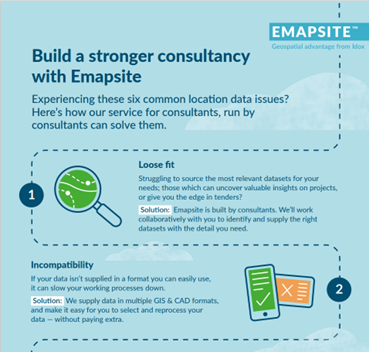Insurance bombshell needs evasive action
The retail insurance sector has been rocked by the FCA’s decision to eradicate the practice of price walking – gradually increasing the price to customers who renew with them year on year. The roll-out of a complete culture change for the industry is a way off - the process is still in the consultancy phase - but nobody expects it to be anything less than a done deal, nevertheless.
In short, consumers have never known any different, but businesses have been profiteering above and beyond the levels deemed 'reasonable' by the regulator. However, there are three instant ways in which an insurer can not only address the commercial challenge, but also secure a regulator-friendly book of evidence on which to base its future premium variations.
Price-walking has been normal for a long time. To put things in perspective, almost 46 million home and motor insurance policies were written in 2019, which serves to highlight what a bombshell this is for high-street insurers who had been price-walking by default as part of their commercial model.
The FCA’s decision is consumer-focused and therefore the right one, definitely, but it still has the potential to undermine the value of £18 billion across the sector (the approximate value of those gross premiums last year), and that’s concerning.
For the insurers, this means there’s a lot of internal reflection to do, and re-modelling of risk profiles. There is one thing that can speed all of this work up, make it more accurate, and deliver a cross-book competitive advantage in the process, and that’s location data expertise. Surprisingly, many insurers believe this needs to be an in-house skill set and most insurers are ill-equipped to develop those skills fast enough. Some examples illustrate this:
POSTCODE-BASED PRICING IS DEAD
Pricing against basic addressing is dead. Be it a quotation created via a broker, a call-centre, or drop-down address fields on a website, insurers can no longer depend on ‘near enough’.
A postcode covers, on average, 15 houses, but it could cover up to 100, hundreds of metres apart. However, premiums might still need to rise as a matter of course each year, if a property is near an evolving physical feature that’s increasing the risk of subsidence risk. Location data expertise can blend in-house book details with satellite imagery and spatial analysis to identify those risks to property, in detail. That provides property-by-property premiums.
PRECISE ADDRESS-MATCHING IS NOW PARAMOUNT
Address matching – knowing which property or vehicle’s location is actually being insured – will also be on the agenda. Poorly matched data from aggregator websites can throw excessive risks back into an insurer’s book. And fraud is a constant background concern. Price-walking increses those risks, nut location data expertise can cleanse a database, enable an insurer to run checks on that data almost constantly, and connect premium levels to the right location with confidence.

‘PORTAL POLICIES’ NEED NEW PROVENANCE
All insurance pricing has to be fair and equal. It will be illegal to hike renewals on a roll-over basis and the regulator will be checking in to see what progress insurers are making. More and more customers want to be signing up online, or renewing via so-called ‘one customer’ portals, so insurers need t validation checks they can rely on. This often means linking disparate datasets, but what’s commonly overlooked is the opportunity to mitigate risk. Is that declaration about 10sqm of flat roof accurate? Is that address really only 400m from a river? Is it likely that car is always parked on a drive – if there’s no driveway there? Location data expertise can do the hard lifting here, to help insurers up-skill their digital toolkits and tackle these problems head-on.
THE BIGGER PROBLEM
Price-walking has been recognised and is being addressed now, thanks to the FCA, but for many insurers it’s still skill sets and technological capabilities that are the underlying challenge.
The use of location data is often seen as a siloed, specialist part of their operations. Whereas, with the right external support and an internal appetite for transformation (and innovation, and lower costs, and less risk, and greater competitive advantage…) location data expertise has the power to minimise the impact of the price-walking bombshell completely.
SEE HOW WE CAN IMPROVE YOUR BOOK
Take a look at our services for the insurance sector and get in touch. Our team can tell you about the problems they’ve helped to solve – there’s no pressure – and they’re always happy to offer insights about the art of the possible with no obligation on your part.
See how we can improve your book
Latest News

Six Location Data Challenges for Consultancies | Emapsite
Location data is critical to consultancy work, yet common issues like outdated datasets, licensing uncertainty, and incompatible formats can slow projects down and increase risk. This infographic explores six of the most frequent location data challenges faced by consultancies today — and how teams are overcoming them with reliable, compliant, and easy-to-use spatial data.
Read Full Article-
Future-proofing Assets Against Flooding in Britain
Read Full Article -
Why address data is the unsung hero in the UK’s new-build recovery
Read Full Article
